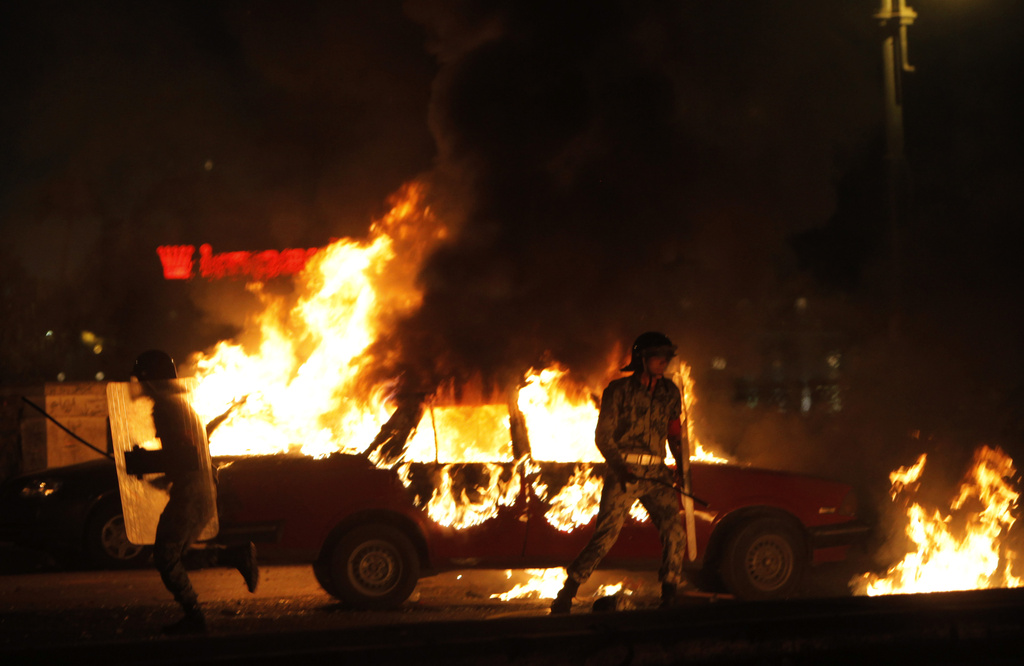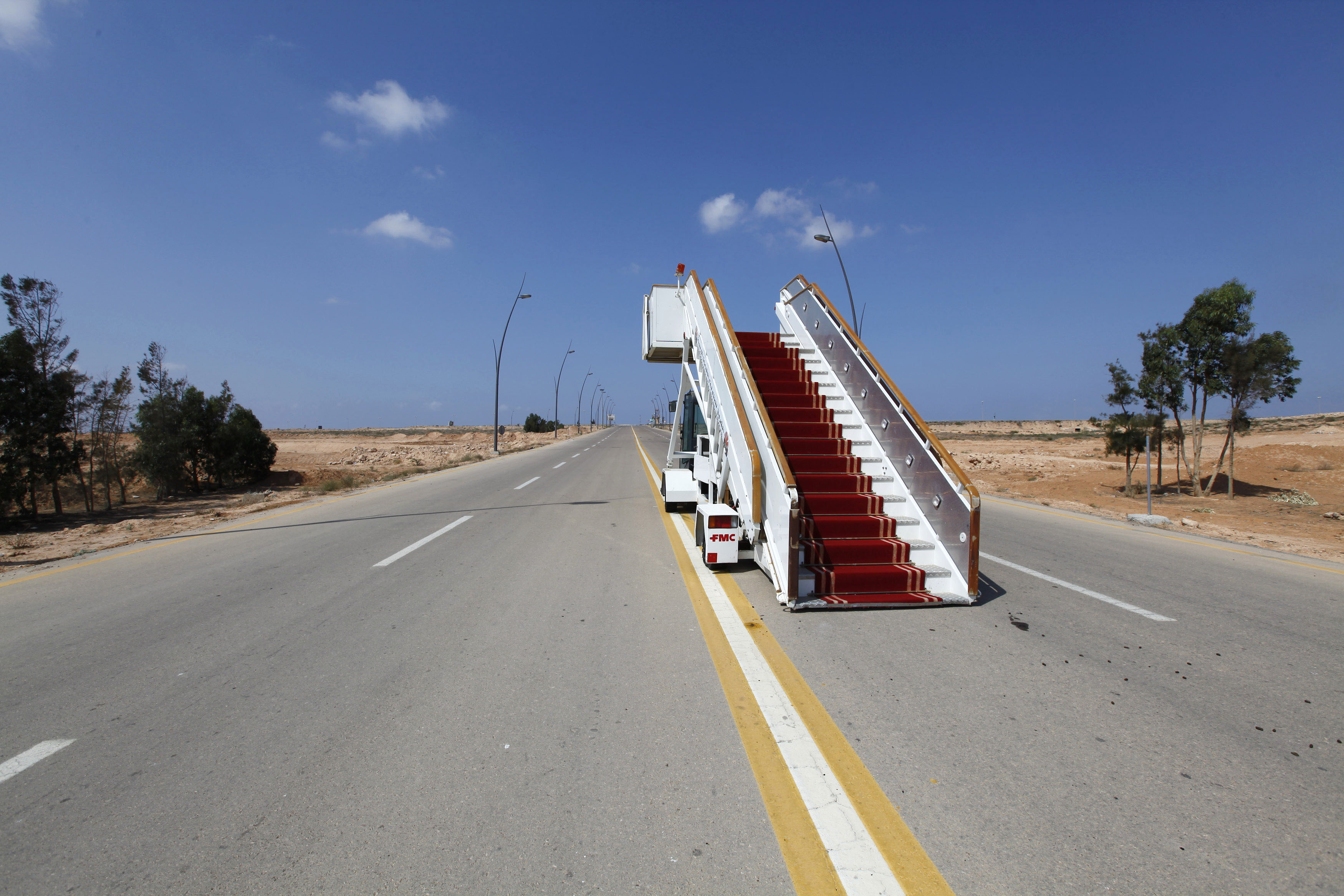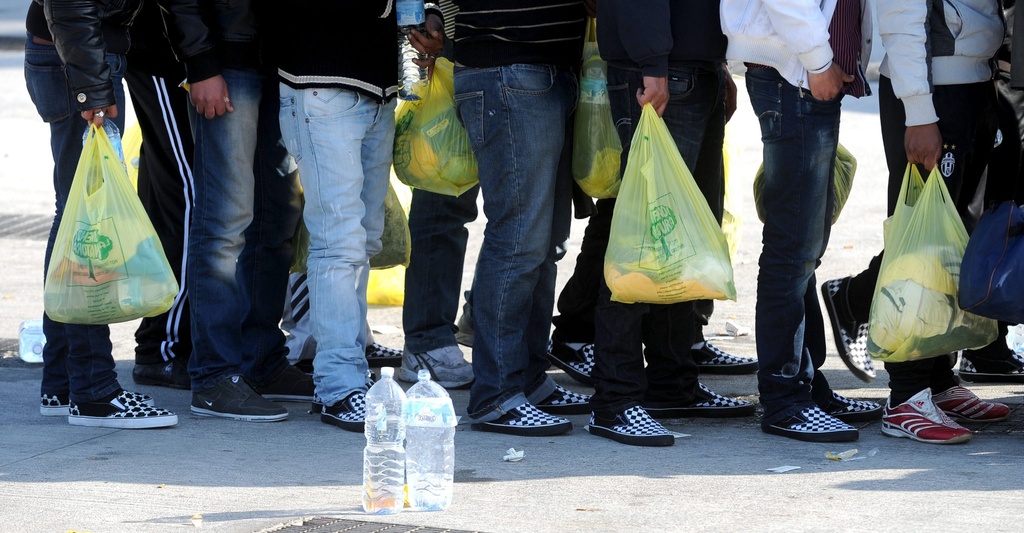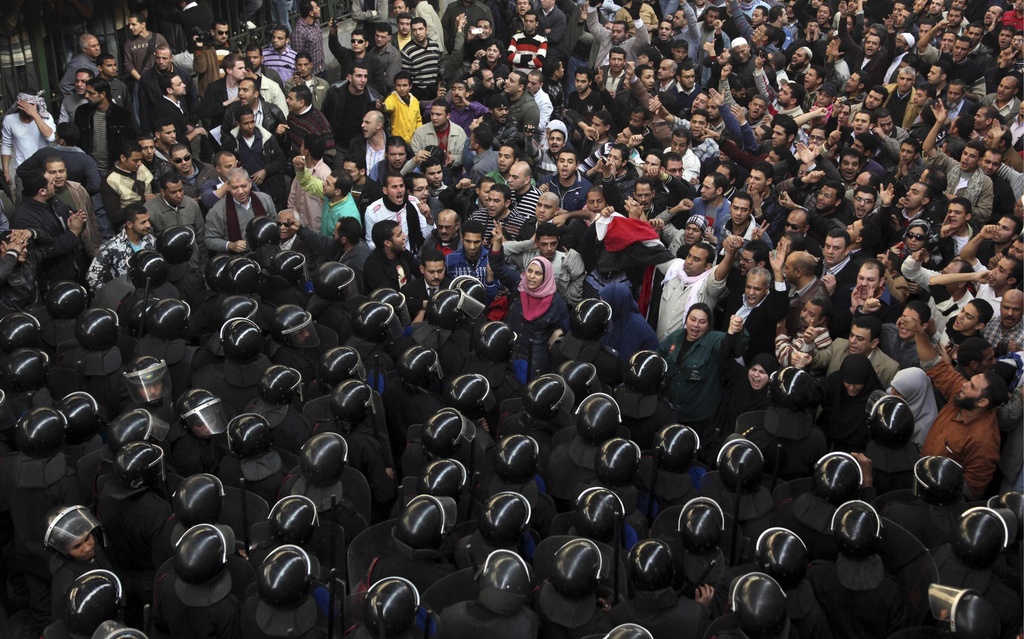Firms respond to risks for overseas staff

The political upheaval and natural disasters of the last few months has sharpened corporate thinking, also in Switzerland, towards risks faced by employees abroad.
Protecting workers from crime, kidnapping, terrorist acts, natural catastrophes and medical emergencies has spawned a dedicated branch of the insurance industry and a number of specialist service companies.
So far this year, companies have had to contend with employees being caught in Australian floods, the Arab Spring uprisings, the New Zealand earthquake, a volcanic eruption in Iceland, the nuclear plant drama in Fukushima, Japan, and a deadly bombing and shooting spree in Norway.
Three years ago Swiss industrial giant ABB also faced the crisis of two employees being held hostage in Libya in the midst of a political spat between the two countries.
One organisation that specialises in reducing the health and security risks posed to overseas employees is International SOS, formed in 1985. The group’s Swiss unit dates back to 1974, operating under the name of SOS Assistance before being taken over by the parent body in 1998.
Car crashes and petty crime
International SOS now operates in over 70 countries with more than 9,000 corporate and non-governmental organisation (NGO) clients – 400 of which are based in Switzerland, including most of the largest SMI stock-listed companies.
Caring for foreign based staff is both a moral and legal responsibility of organisations, made more acute by the increasingly globalised nature of business.
Overseas staff face greater risk from petty crime and road traffic accidents than terrorism or revolutions, according to International SOS Switzerland’s regional security manager Lucas Cohen.
“Civil wars and major natural catastrophes grab the headlines and are associated with more volatile parts of the world,” Cohen told swissinfo.ch. “But many employees underestimate the more run of the mill risks that are just as likely to strike in so-called safe countries.”
The first part of International SOS’s job is to train and inform travelling clients about the potential medical and security risks associated with the area they will be visiting – and how to avoid them.
Evacuation last resort
Once dispatched abroad, clients are updated with electronic briefings about any changes in their area and their movements are monitored with an up-to-date tracking system. If a problem does occur, clients can contact emergency numbers for assistance.
During the Tunisian uprising, International SOS evacuated 1,500 people from the country and in February managed to airlift 800 others from Egypt during a single day.
“This has become an increasingly important area for companies with staff often relocating abroad for long periods and sometimes with their families,” Cohen told swissinfo.ch. “Employees need reassurance that they are being looked after.”
“The costs to a company for failing to do this adequately can be significant,” he added. “Besides reputational damage, a company could foot the bill for emergency evacuations, possible litigation and lost business opportunities. A well prepared company could take advantage of opportunities before its rivals can mobilise.”
World Cup
This principle is not lost on ABB, that uses International SOS services to care for its staff abroad. “This application is an integral part of ABB’s crisis management procedures,” spokesman Antonio Ligi told swissinfo.ch.
More Swiss small and medium-sized enterprises are also subscribing to the service as they look to beat the cost of the rising franc by seeking out new markets and production sites.
It is not just the corporate world that has to worry about the welfare of staff based abroad. A range of NGOs, charities and sporting associations must also consider health and safety risks on foreign projects – often in volatile regions.
World football’s governing body Fifa has to contend with health and security issues at its numerous events staged around the world.
Cultural differences
International SOS was responsible for organising an emergency medical hotline at the 2010 World Cup in South Africa. The organisation also set up medical facilities and provided training, health experts and an air ambulance service at the Under-17 World Cup in Nigeria in 2009.
Companies and NGOs must also learn about the cultural differences of various countries and the impact their decisions could have on future relationships. Evacuating staff back home from a trouble spot could lead to divisions between foreign employees and local workers.
“In Japan’s culture, you could be seen as running away and losing face if you evacuate and leave your Japanese colleagues behind,” Cohen told swissinfo.ch. “For some companies this meant sending employees on extended leave rather than evacuating them during the Fukushima crisis.”
The International SOS group operates in more than 70 countries worldwide, with some 2,000 medical professionals and 200 security consultants at its disposal.
Formed in 1985 in Singapore as AEA International, the company spread its wings out of Asia by either taking over similar companies or forming alliances with a string of other enterprises.
These alliances give International SOS access to some 68,000 professionals around the globe.
Such alliances include the security consultancy firm Control Risks and the Swiss air medical organisation Rega.
In 1998 AEA International acquired Swiss medical company SOS Assistance (formed in Switzerland in 1974) and in 1999 the group was renamed International SOS.
The group has around 9,200 clients worldwide, providing services via five regional centres, 68 representative offices, 27 alarm centres, 10 air ambulances, 32 of its own medical clinics and around 500 smaller health sites in more remote areas.
The Swiss operations have 400 companies and NGOs on its books, including 65% of Switzerland’s largest SMI listed companies.
Headquartered in Geneva, with bases in Zurich and Basel, the Swiss operation handles around 3,000 client cases a year.

In compliance with the JTI standards
More: SWI swissinfo.ch certified by the Journalism Trust Initiative






You can find an overview of ongoing debates with our journalists here. Please join us!
If you want to start a conversation about a topic raised in this article or want to report factual errors, email us at english@swissinfo.ch.